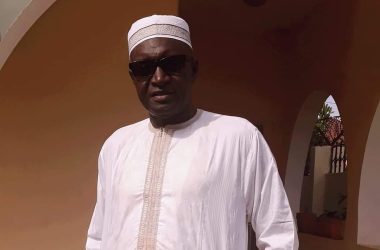
(JollofNews) – ‘The sum of human wisdom is not found in any one language, and no single language is capable of expressing all forms and degrees of human comprehension’ Ezra Pound
Language, spoken and written, is very important in human communication. It is through language that we are able to transmit our thoughts and ideas to others, contribute to the development of our communities and societies and gain identity, dignity and respect. Language gives us a community of feeling and fraternity, a particular and special belongingness, a uniqueness of their culture. A people’s perception of their reality, their being, is expressed through their language.
If our reality can more be adequately expressed in our Gambian, indigenous languages, then it begs the question why are we putting the highest premium on English Language and judging people’s excellence and abilities on their eloquence and proficiency in English Language. We lampoon and chastise people for their inability to express themselves or communicate in English.
Our intelligence is measured by that yardstick. Meanwhile, this person can express himself or herself effortlessly in his or her African Language, the mother tongue. Yet, we score less; we reduce him or her to nothingness because of poor proficiency in a colonial, imperialist language.
How can we docolonise our minds and be greatly proud of ourselves when we eat, sleep, drink and think a colonial language and have less regards for our own? How can we advance as a people and society when we look down on our own, when we look up to a language, English Language, which has been the instrument of our own oppression and exploitation, our own definition. Ngugi Wa Thiong’o has insisted ever when our African authors, for instance, write in English ‘they are contributing to the expansion of, and dependence on, the English language’.
My anger is certainly not directed at the English Language but rather at people, my own kith and kin, who scornfully dismiss a fellow, their own kind, for not being able to convey his or her thoughts in English Language, for judging competence through that yardstick. Yet, this person, poor either in the spoken or written English Language, has a complete command of his or her African language, its construction, proverbs and axioms, its etymology and all. But no, this person is not ‘good enough’ and with a certain derision we cast aspersion on the character and dignity. If only we have a better understanding of this quote of Albert Einstein: ‘Everybody is a genius. But if you judge a fish by its ability to climb a tree, it will live its whole life believing that it is stupid’. And a fish should not be made to feel that way.
Language brings about a particular acceptance and connection between the speaker and his or her audience. And as Nelson Mandela aptly stated “If you talk to a man in a language he understands, that goes to his head. If you talk to him in his language, that goes to his heart.” Why do we, our policy and decision makers, address our people, in the English Language?
When we are launching a project, commemorating an event, disseminating the findings of an important study, we address our people in English Language, even though a majority of the audience do not understand that language. How do we connect with them through such an approach? How do they understand our messages and information and how do we expect them to act upon these, to contribute their instructed judgment to the issue at hand? Or do we think that English Language is the ‘unifier’, our attempt to cast away linguistic ‘infighting’? What would be the added value of an information lest understood by the audience because of the medium used?
Countries that have developed first worked on their language of communication or of commerce. English Language, French, Mandarin, Japanese, Hindi, Urdu, Kiswahili, Amharic, are not just written (with own scripts) have have undergoing refinement and betterment over the centuries. Their development have been conveyed through their languages. Because they are written and taught at school, every one of their citizens is able to meaningfully participate in their development efforts. Colonialism must have truncated the development of our languages, English Language imposed. But all is not lost.
Non-formal Education has used English Language alphabets to give much needed empowerment to our fellow citizens who did not have the opportunity to sit in a classroom. We should begin to teach our local languages in our schools, side by side with English Language. We should begin to instil in our children a pride for their local languages, the desire to learn all the local languages. It would be one way of fighting intolerance and xenophobia and tribalism. We should make it known that inability to speak or write English Language is not a determiner of success in life. And yes, we should all condemn the condescending attitude we display towards people who cannot speak English Language. It is us to be ashamed.
And a shame that I am using English Language to communicate my thoughts.





A cultural disadvantage we must contend with is the lack of written form of our
Language(s). A written form of language tremendously enhances exchange of knowledge between the people and most importantly preserving of history and knowledge. We must increase our efforts in recovering and fermenting/developing our already existing alphabets.